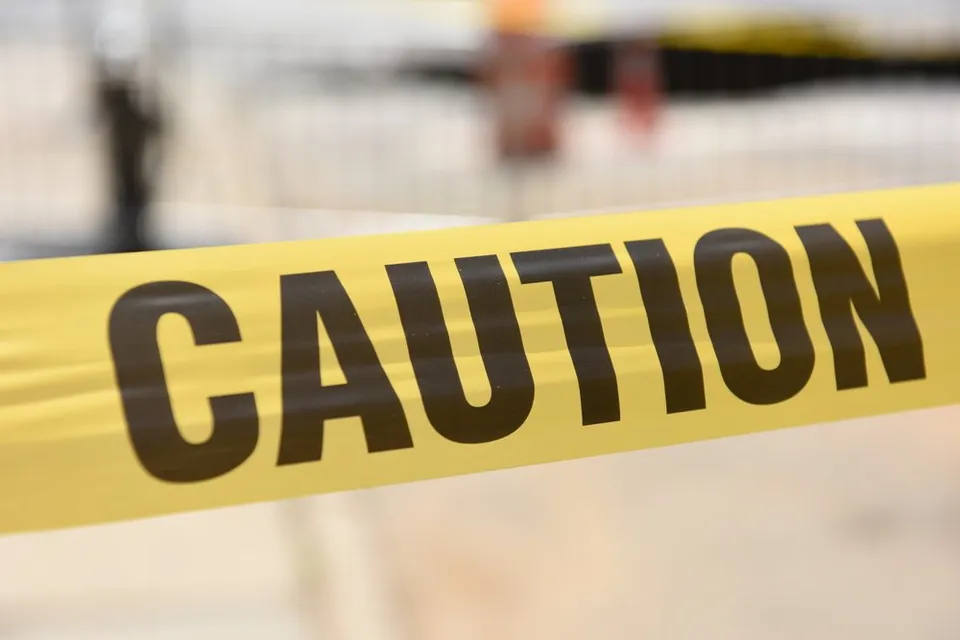Why Sinkholes are Common in Florida

Florida residents are no strangers to sinkholes.
Recently, a sinkhole opened up at a Mosaic fertilizer plant. The huge hole caused polluted water to enter the Floridan Aquifer, contaminating the water. Whether activities at the plant caused the sinkhole to open up is unclear, however, this is the second time a sinkhole has opened up at the New Wales plant.
Other stories of sinkholes opening up under homes and in roadways are part of Florida lore. An old Florida Department of Environmental Protection poster shows the distribution of some of the state’s sinkholes from 1954 to 2004.
Sinkholes are alarmingly common in Florida. Here’s why.
Why Do Sinkholes Happen?
Sinkholes have multiple causes.
Natural sinkholes happen when underground soluble bedrock such as limestone, gypsum, or sandstone, among others, is dissolved by acidic rainwater. It can take hundreds of years for the bedrock to dissolve enough, however, the cavities and voids it forms and enlarges can have devastating effects that seem immediate and unpredictable.
With a void beneath it, once the top layer of rock and dirt can no longer support the weight of whatever is built upon it, it collapses.
Not all sinkholes leave gaping, dangerous holes and property destruction. Some holes result in a little sinking and the formation of ponds.
Manmade sinkholes occur when an underground cave or a tunnel collapses, causing the ground above the cave or tunnel to become unstable and sink. Activities like drilling can also exacerbate areas prone to sinkholes and cause them to become unstable.
Because most of Florida is on a bed of limestone, it is more susceptible to sinkholes. Central Florida is especially prone and has earned the nickname “Sinkhole Alley.”
Are You Protected From Sinkholes?
If you have not read your homeowner’s insurance policy or your renter’s policy, you may want to check that sinkhole damage is covered. It is no longer compulsory and must be added to a policy at the policyholder’s request.
Signs that your home may be in danger from a sinkhole include:
- Newly exposed surfaces at ground level. If you can now see parts of your foundation or fence posts that were previously underground, your soil may be settling or sinking.
- Sagging or leaning in fences and structures.
- Large cracks in driveways, walls, and floors.
- Water collecting in areas in which it didn’t use to collect. If a small pond is forming after a thunderstorm and this didn’t use to happen, some of your land may have sunk.
Consulting With a Tampa Sinkhole Attorney
Sinkholes can cause structural damage and make your home unsafe to live in. They can destroy property and can cause injuries. If you notice a sinkhole opening, it is important to speak to your insurance company and the county emergency management office. While some small sinkholes can be filled in and be made stables, others may be too dangerous to fix.
A skilled Tampa sinkhole attorney who understands the causes and consequences of sinkholes can help you file an insurance claim so you have the best chance of having your claim approved. With knowledge of the insurance process and sinkhole investigations, a Tampa sinkhole attorney can help ensure your claim is filed properly the first time and reduce the stress and confusion of filing an insurance claim.
If you believe that the developer of your property knew about the sinkhole and failed to inform you, speaking with a Tampa sinkhole attorney can provide you with your legal options and help you evaluate whether you have a legal claim to compensation.
Florida sinkholes may be common—but that doesn’t mean you have to live with the damage. Call a Tampa sinkhole attorney today to get help with your claim.
